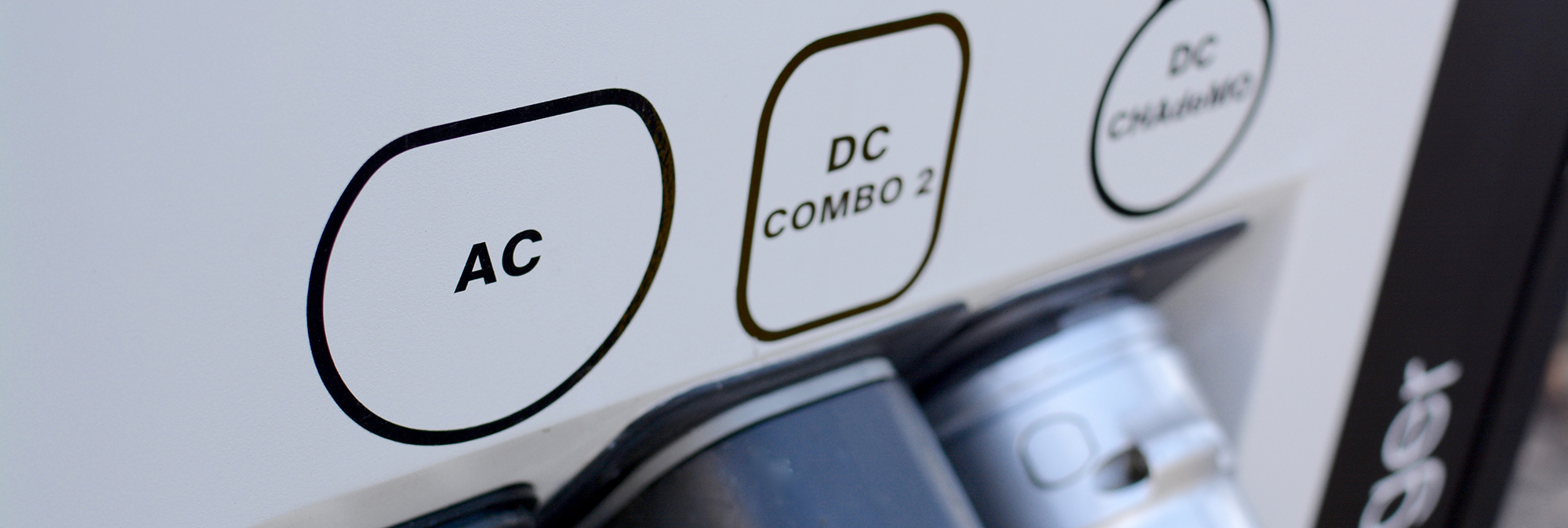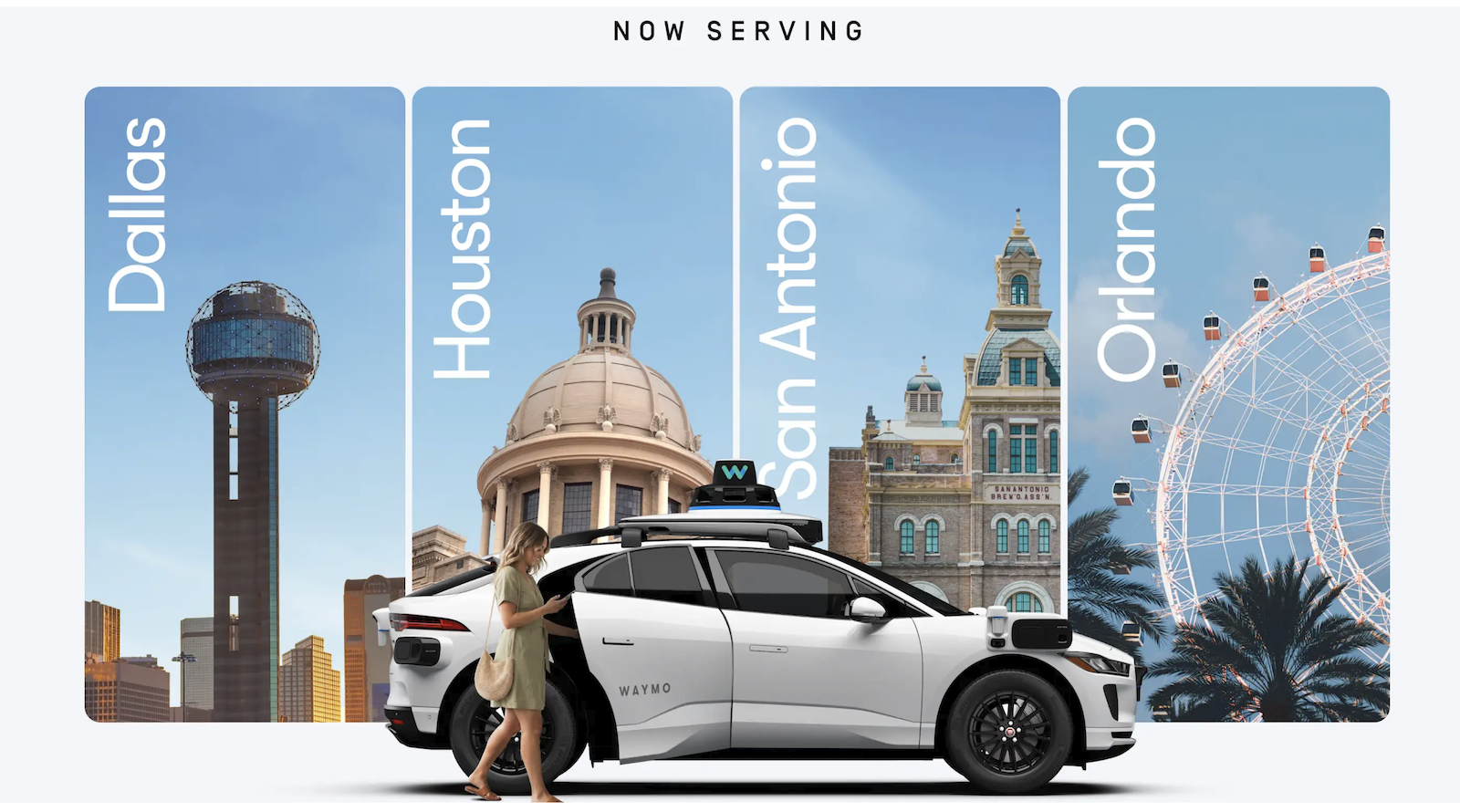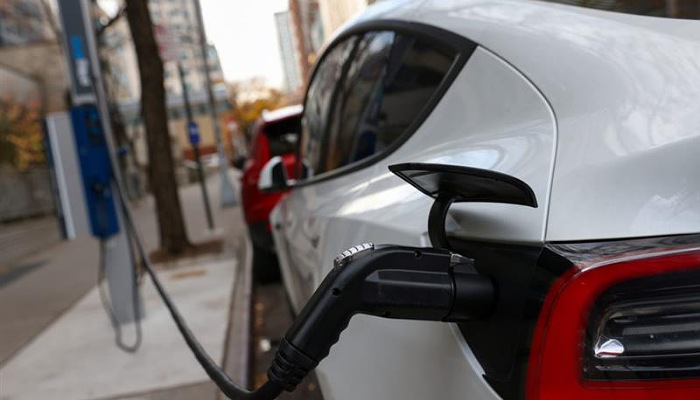
AC vs. DC Charging for Electric Vehicles
What sets AC and DC charging for electric vehicles apart? It’s important to understand that electric vehicle batteries can only store DC (direct current) power, while the electricity supplied by the grid is in the form of AC (alternating current). Therefore, the primary distinction between AC and DC charging for electric vehicles lies in where the conversion from AC to DC occurs.
In DC charging, electricity is directly transmitted to the vehicle’s battery after AC-to-DC conversion has already taken place within the charger itself. In contrast, AC charging relies on an onboard charger within your EV to convert the incoming AC current from the grid into DC. This distinction results in AC charging generally being slower than DC charging, with the charging speed being constrained by the capacity of the onboard charger.
The conversion from AC to DC is a common process, not limited to electric vehicles; it also occurs in chargers for laptops and smartphones because these devices require DC power for charging.
Unleashing the Power of Direct Transmission
DC charging outpaces AC charging in speed due to its direct power transmission to the car battery, eliminating the need for conversion through an onboard charger.
As a result, DC charging stations can offer significantly higher charging speeds, reaching capacities of up to 350 kW, in stark contrast to AC charging, which maxes out at a maximum of 22 kW when using a three-phase electricity supply.
The AC-Powered Backbone of Residential Charging

Home EV chargers are consistent with the AC (alternating current) variety. The most prevalent home EV chargers typically have a rating of 7.4 kW. These home chargers are available in both untethered and tethered configurations, offering flexibility to users. In contrast, DC chargers for home use are exclusively tethered.
Charging an electric vehicle at home with a 7 kW AC charger typically takes around 4 to 8 hours, although the exact charging time can vary depending on various factors.
Choosing Between AC and DC EV Charging – Making the Right Choice
When it comes to deciding between AC and DC EV charging, several factors come into play, including your charging requirements, your vehicle’s capabilities, and the charging infrastructure available to you.
AC charging is an excellent choice for home charging. It’s not only cost-effective but also convenient for residential installations. On the other hand, DC charging offers faster charging speeds, making it ideal for situations when you need a fast charge, such as car parks and businesses. It’s particularly well-suited for use at public charging stations and during long journeys.
Charging Solutions from Vital EV
At Vital EV we offer both AC and DC charging solutions. Our AC Satellite charger from Kempower is a stand-alone EV charger designed to charge both hybrid and fully electric vehicles with an easy to use interface for customers to use.
Our Station Charger is an ultra-rapid charging solution designed to accommodate a number of different electric vehicles, including cars, commercial vehicles, and off-highway vehicles. This charging station consists of a cabinet with the capacity to house up to eight power modules, each boasting a 50kW rating. This configuration allows for a total charging capacity of up to 400kW. The Station Charger is available in both single and dual-port configurations and incorporates the user-friendly interface and hardware found in the practical and intuitive Satellite Charger product.
Empowering Your Charging Decisions
At Vital EV, we understand that choosing the right charging solution for your business can be a pivotal decision. That’s why we’re committed to providing you with expert guidance and comprehensive information to ensure you make an informed choice.
Our team of knowledgeable professionals is here to assist you every step of the way. Whether you’re looking to electrify your fleet, upgrade your charging infrastructure, or integrate EV charging into your business operations, we’re here to help.
We take a personalised approach, considering your unique needs, budget, and future growth plans. With our extensive experience in the electric vehicle charging industry, we can recommend the best-suited solutions tailored to your specific requirements.









